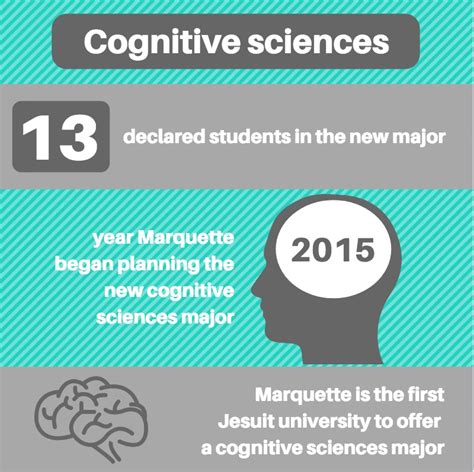Cognitive science is an interdisciplinary field that examines the mind and its functions. It draws upon psychology, neuroscience, linguistics, computer science, and philosophy to understand how we think, learn, and remember.

Benefits of a Cognitive Science Degree
1. High Earning Potential
According to the U.S. Bureau of Labor Statistics, the median annual salary for cognitive scientists was $107,560 in May 2021. The top 10% of earners made over $172,290.
2. Diverse Career Opportunities
Cognitive science graduates pursue careers in various fields, including:
- Human-computer interaction
- Artificial intelligence
- Neuroscience
- Linguistics
- Education
- Marketing
3. Strong Analytical and Critical Thinking Skills
Cognitive science programs emphasize analytical and critical thinking skills essential for success in any field. Graduates develop the ability to solve complex problems, interpret data, and communicate their ideas effectively.
Considerations Before Choosing Cognitive Science
1. Course Load and Rigor
Cognitive science programs are typically demanding, with a heavy course load in mathematics, statistics, and computer science. Students should be prepared for a rigorous academic environment.
2. Interdisciplinary Nature
Cognitive science is a highly interdisciplinary field, which means students need to gain knowledge from various disciplines. This can be both a strength and a challenge.
3. Relevance of the Field
While cognitive science is a fascinating and emerging field, its practical applications may not be immediately evident. Students should consider their career goals before choosing a cognitive science major.
Strategies for Success in Cognitive Science
1. Develop a Strong Foundation in Math and Statistics
Cognitive science relies heavily on math and statistics. Students should strengthen their foundational knowledge in these areas before applying to a cognitive science program.
2. Engage in Hands-on Research
Research is an integral part of cognitive science. Students should seek opportunities to participate in research projects to develop their skills and gain valuable experience.
3. Build a Strong Network
Networking with professionals in the field is crucial for career success. Attend conferences, join professional organizations, and connect with alumni to expand your professional network.
Common Mistakes to Avoid
1. Underestimating the Rigor of the Field
Cognitive science is not an easy major. Students should be prepared for demanding coursework and a rigorous academic environment.
2. Neglecting Practical Skills
While cognitive science provides a solid foundation in theory, it is essential to develop practical skills such as data analysis, programming, and communication.
3. Failing to Consider Career Options
Before choosing a cognitive science major, students should research potential career paths and ensure that the field aligns with their interests and goals.
Pros and Cons of a Cognitive Science Degree
Pros
- High earning potential
- Diverse career opportunities
- Strong analytical and critical thinking skills
- Fascinating and emerging field
Cons
- Course load and rigor
- Interdisciplinary nature
- Relevance of the field may not be immediately evident
Innovative Applications of Cognitive Science
1. Personalized Learning
Cognitive science principles can be applied to develop personalized learning experiences tailored to each student’s needs and learning styles.
2. Artificial General Intelligence
Cognitive science plays a crucial role in developing artificial general intelligence (AGI), a machine that can perform any intellectual task that a human can.
3. Neural Networks
Cognitive science principles are applied in the design and implementation of neural networks, a type of machine learning algorithm that can mimic the human brain’s learning processes.
4. Brain-Computer Interfaces
Cognitive science is used to develop brain-computer interfaces (BCIs) that allow humans to interact with computers and other devices using their thoughts.
Tables
| Career Path | Median Annual Salary (May 2021) | Top 10% of Earners |
|---|---|---|
| Cognitive Scientist | $107,560 | $172,290 |
| Human-Computer Interaction Specialist | $114,080 | $158,180 |
| Artificial Intelligence Engineer | $110,140 | $169,190 |
| Computational Linguist | $107,700 | $161,380 |
| Strategy | Description |
|---|---|
| Develop a Strong Foundation in Math and Statistics | Strengthen foundational knowledge in math and statistics through coursework, tutoring, or online resources. |
| Engage in Hands-on Research | Seek opportunities to participate in research projects as an undergraduate research assistant or through independent studies. |
| Build a Strong Network | Attend conferences, join professional organizations, and connect with alumni and industry professionals to expand your network. |
| Common Mistake | Avoidance Strategy |
|---|---|
| Underestimating the Rigor of the Field | Prepare for demanding coursework by enrolling in preparatory courses or seeking additional support from professors or tutors. |
| Neglecting Practical Skills | Supplement theoretical knowledge with practical skills by participating in research projects, taking courses in data analysis or programming, and pursuing internships. |
| Failing to Consider Career Options | Research potential career paths by exploring informational interviews, attending career fairs, and consulting with career counselors. |
